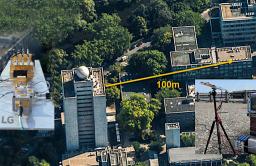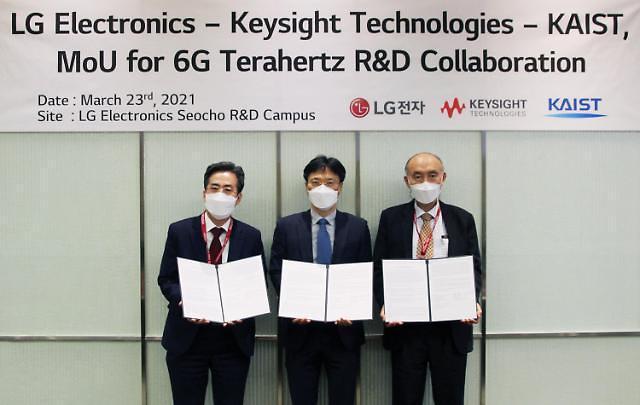"Portable Wi-Fi" Review
25/03/2022

LG Electronics agrees with KAIST for 6G communication technology development

LG Electronics is spurring the 6th generation (6G) telecommunications business. This is to secure sources and candidate technologies as soon as possible, take the initiative in the ecosystem, and lay the foundation for new profitable businesses such as robots and autonomous driving. 6G is called "dream communication" because it can exchange a lot of data up to 50 times faster than existing 5G communication. The company is paying attention to the fact that there are no outstanding "technical leaders" yet, and that it has great expandability and potential value. ◆ “Commercialization Intensive Research” with KAIST On the 17th, according to the information technology (IT) industry, LG Electronics recently signed a two-stage business agreement (MOU) with KAIST for the “LG Electronics-KAIST 6G Research Center”. For three years, the content is to intensively research and develop 6G technology in fields such as terahertz band wireless transmission / reception, communication / sensor fusion, and future security. LG Electronics and KAIST have secured more than 20 6G core original technologies for three years through the first stage cooperation that they have been working on since 2019. It is representative of the development of the world's first 27 GHz bandwidth wideband beamforming solution. LG Electronics officials said, "If the first stage focuses on 6G technology exploration and excavation, the second stage will focus on developing influential technologies that can be used in industry." It is expected that the matter will be carried out. " LG Electronics has recently increased 6G technology development cooperation with research institutes and companies in Korea and abroad. Last year, we jointly developed a power amplifier element in collaboration with the Fraunhofer Institute in Germany, and succeeded in transmitting and receiving 6 gigaterahertz band wireless data for the first time in the world over an outdoor linear distance of 100 m or more. We are also cooperating in technological development with the Korea Institute of Standard Sciences and Keysight in the United States. He is also active in leading global technical standards. In June of last year, he was elected chairman of the Next Generation Communications Union (NGA) under the supervision of the American Communications Industry Association (ATIS). It is an organization established to lead the 6G ecosystem by about 50 companies in each field, including major US telecommunications companies, Apple, Qualcomm, and Meta (formerly Facebook). ◆ Essential for robots and autonomous driving LG Electronics is not a telecommunications company. Last year, the smartphone business was also closed. The expected commercialization of 6G is around 2029, which is still a long way off. Nevertheless, there is a reason why LG Electronics is enthusiastic about 6G technology research. This is because LG Electronics sees it as a major future profitable business, such as electrical equipment, robots, self-driving cars, and smart home appliances based on the Internet of Things (IoT). The theoretical maximum speed of 6G is 1 terabit (1Tbps) per second, which is 50 times faster than the maximum 5G communication speed of 20Gbps. The delay, which means the reaction speed of the network, is 0.1 millisecond (1 / 10,000 second). Since communication services are possible up to 10 km in the air, including on the ground, it is possible to connect a wide range of people, goods, and spaces. Through this, it will be easy to commercialize fully autonomous driving, robot-based remote surgery, real-time holograms, air taxi (UAM), etc., which cannot be achieved with 5G. LG Electronics plans to develop various new businesses based on 6G. A typical example is the autonomous driving concept car "LG Omnipod." It is a car that can be used for office work, watching movies, camping, shopping, etc. in the car by utilizing IoT technology and metabus. The concept of the conventional smart home that LG Electronics has produced has been incorporated into automobiles. The development of 6G original technology itself can be a "no-dage". 6G is expected to be used as a source technology in various industries such as automobiles, medical care, manufacturing, and entertainment. If you secure a patent with 6G technology developed independently, you will make a profit by receiving a patent royalties from each company.
Song Han-gyul